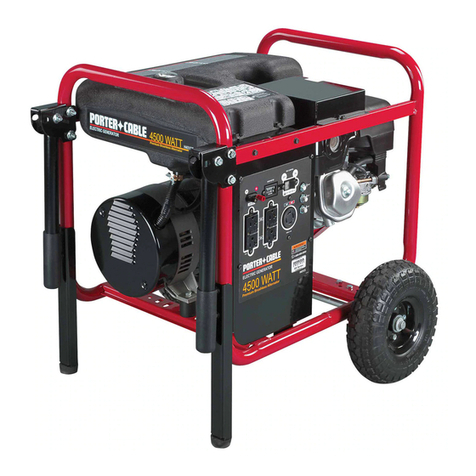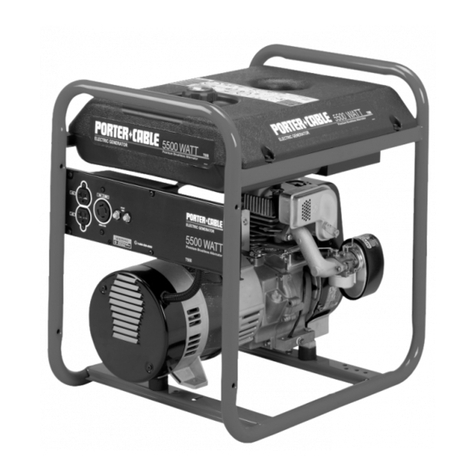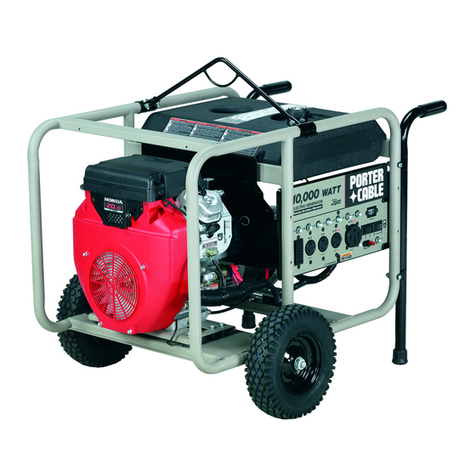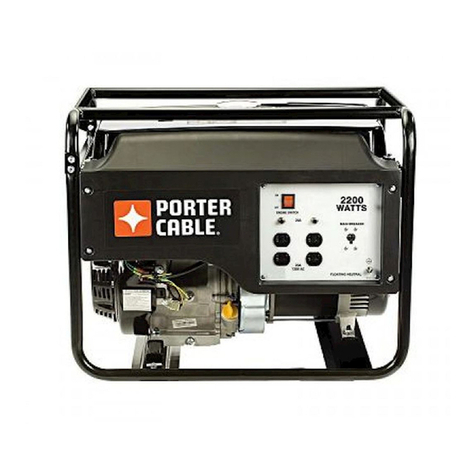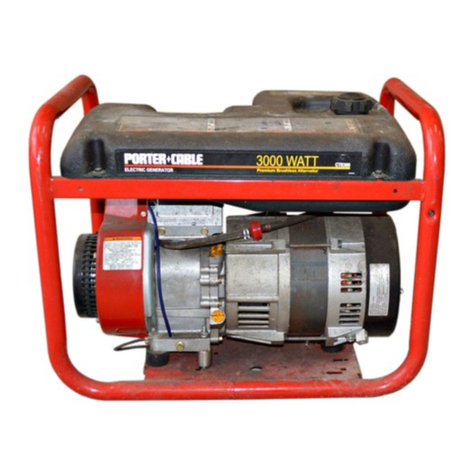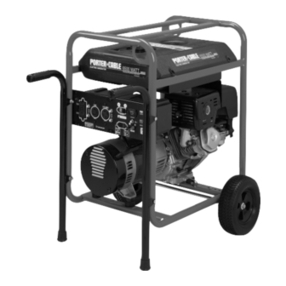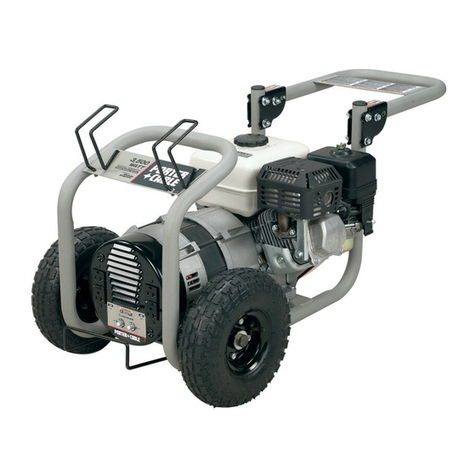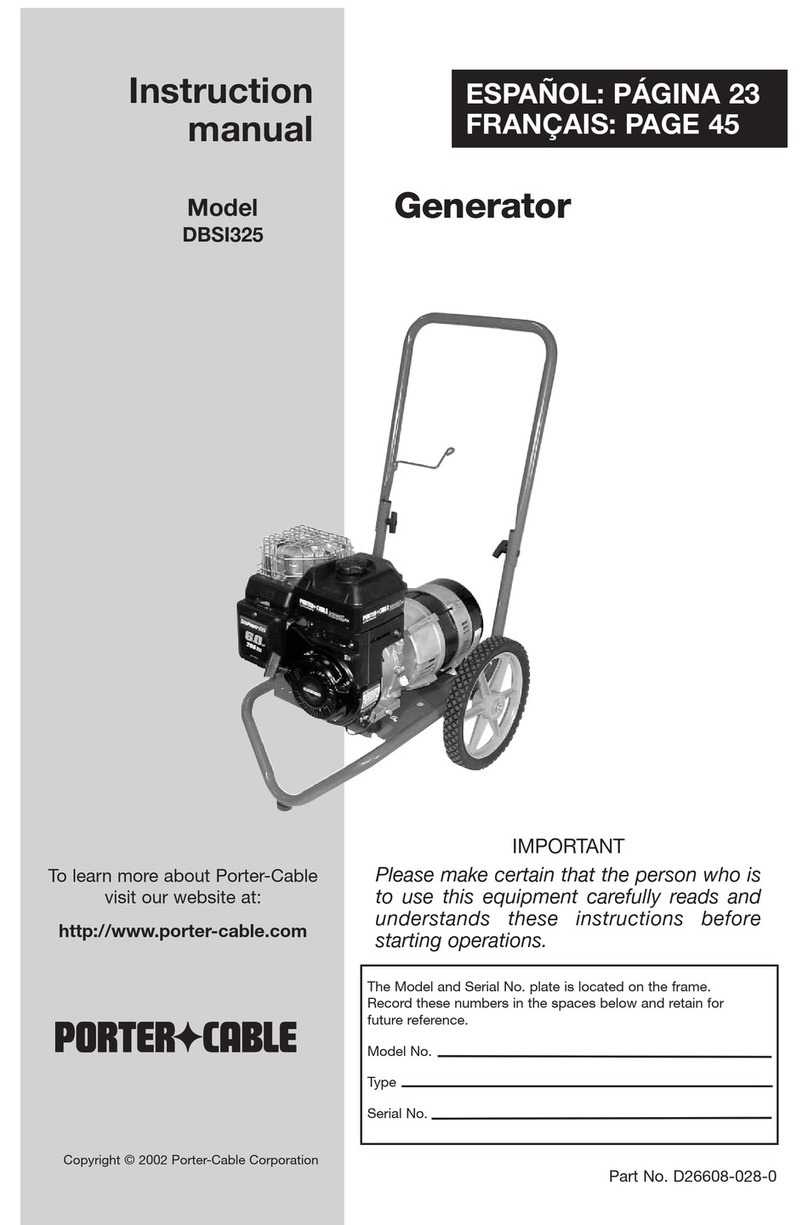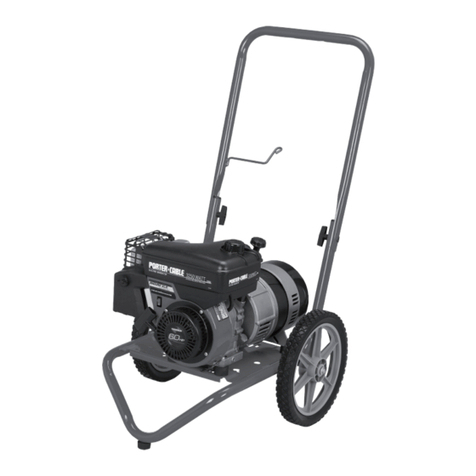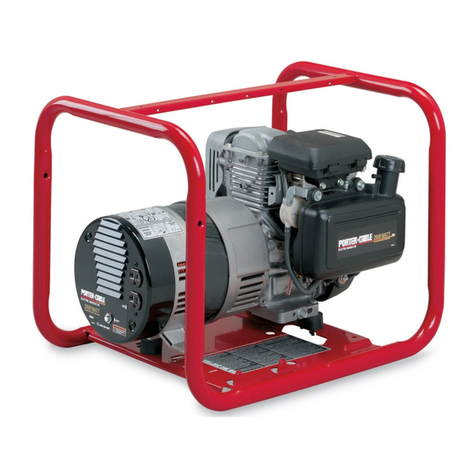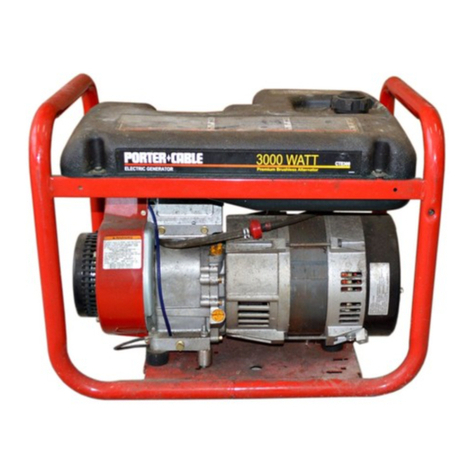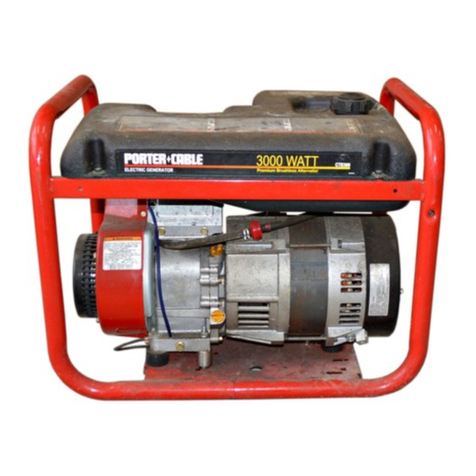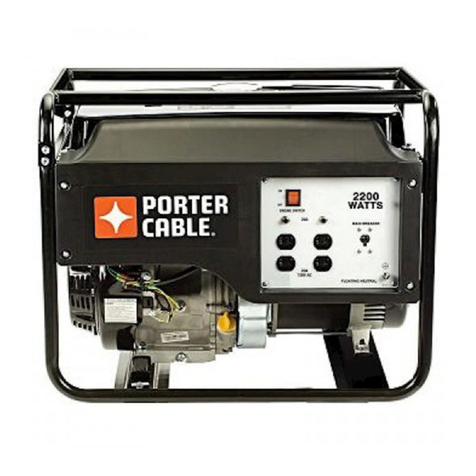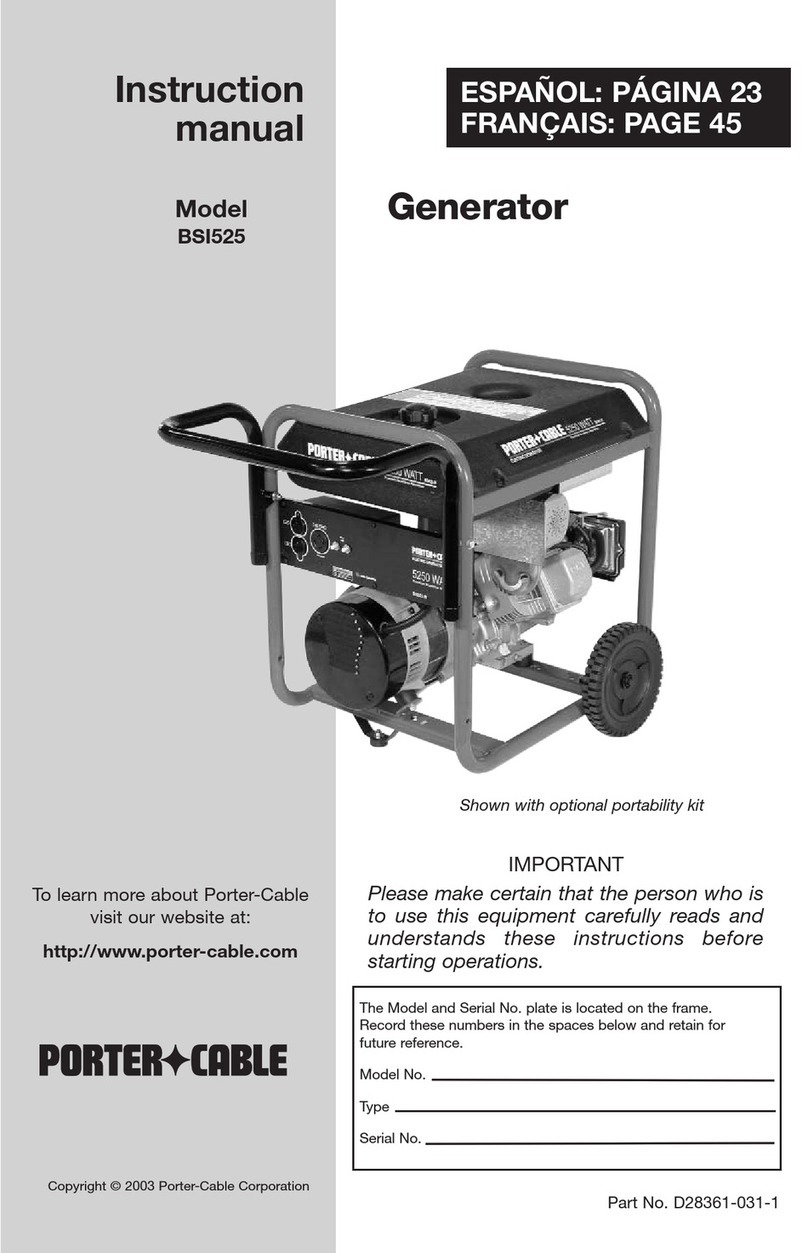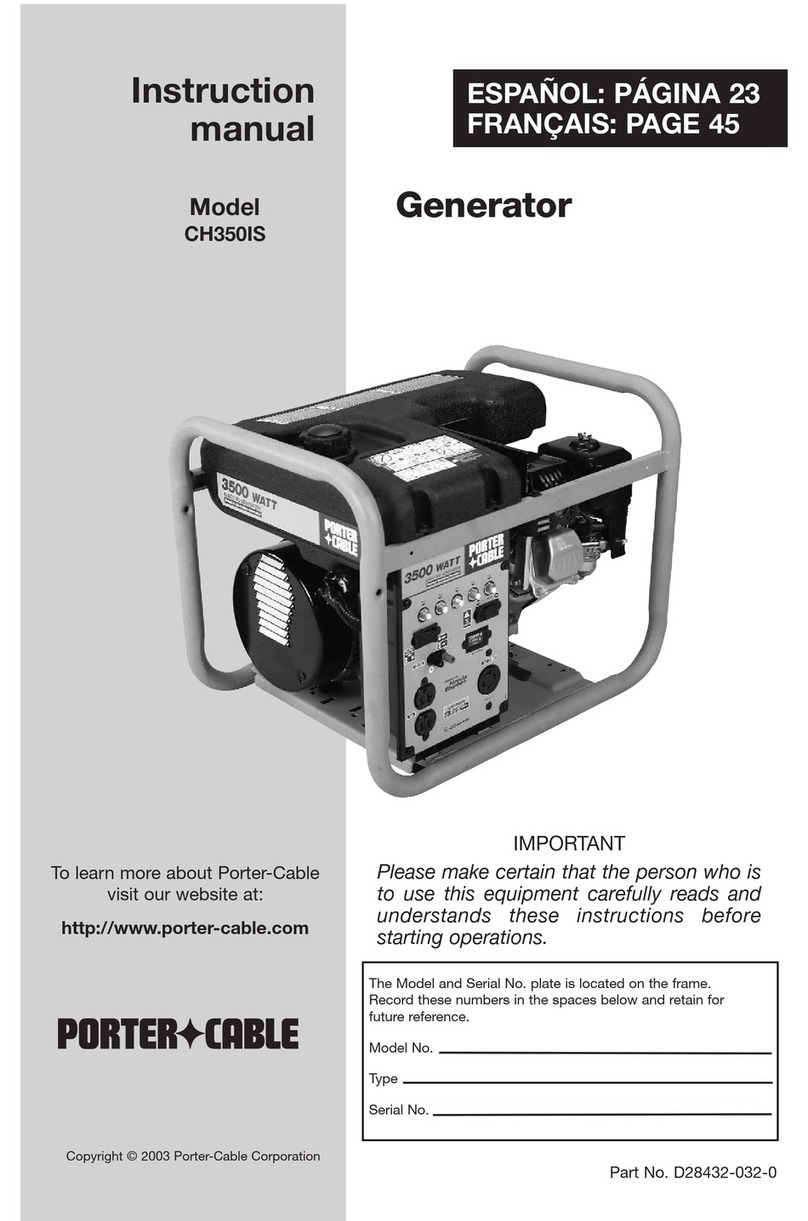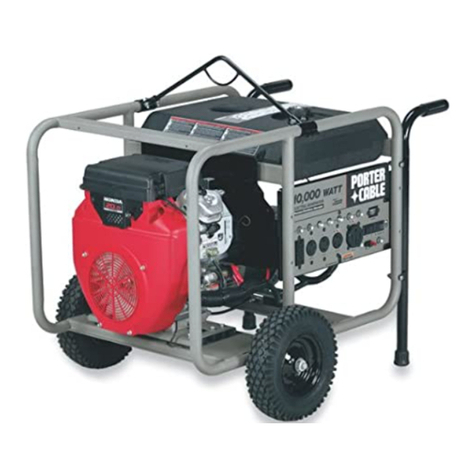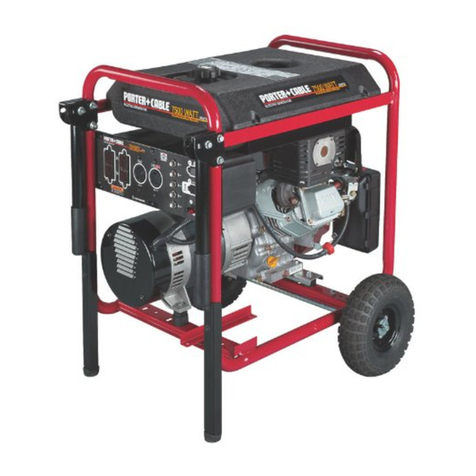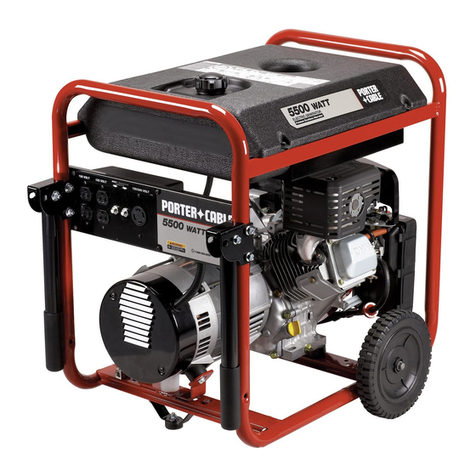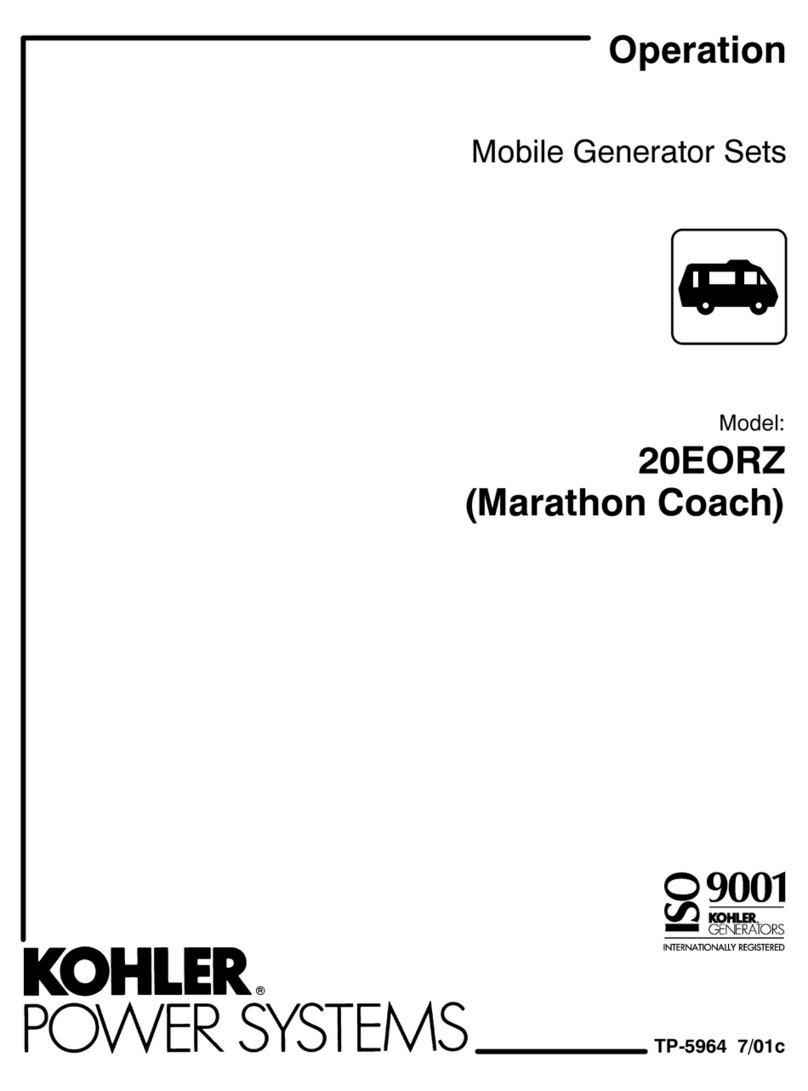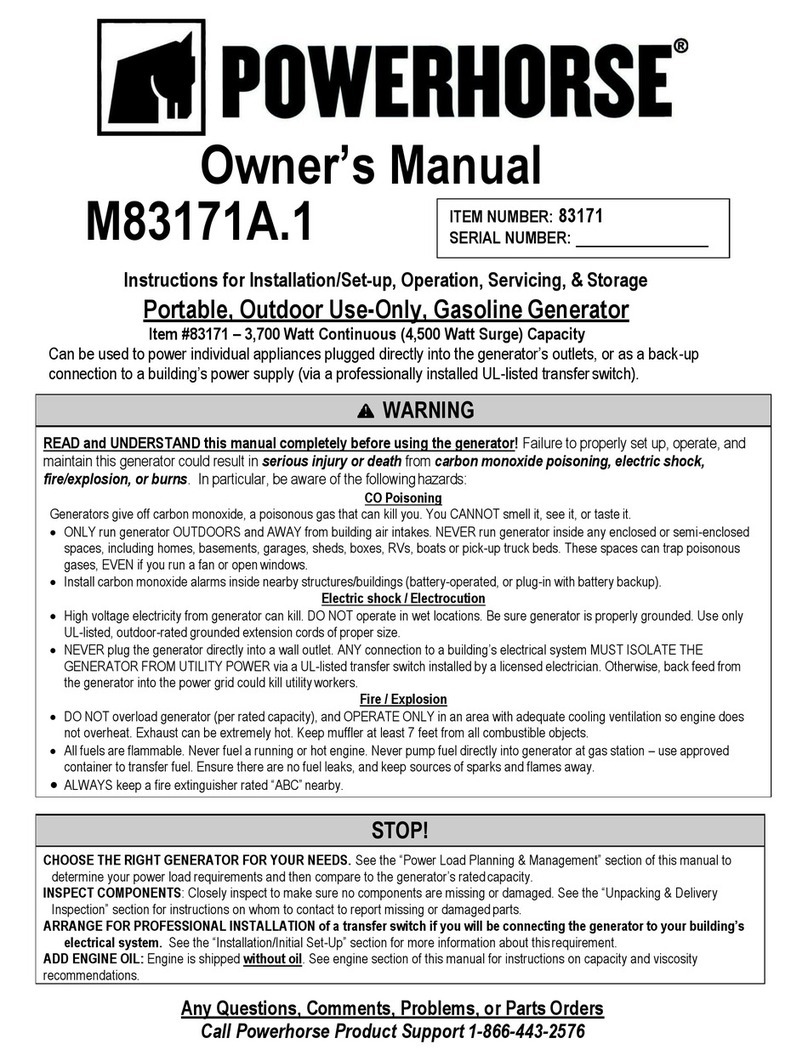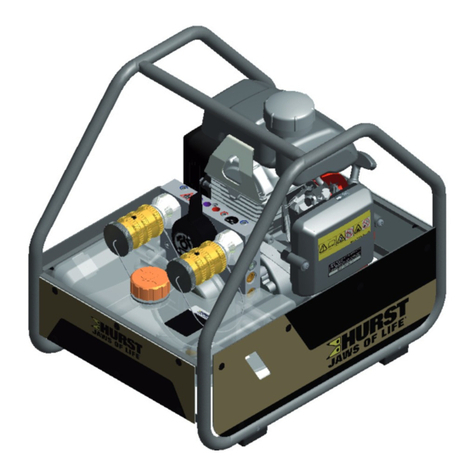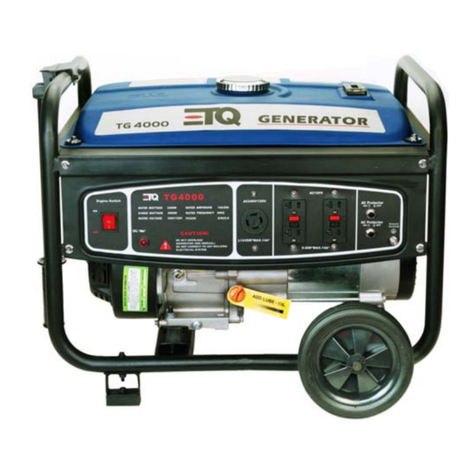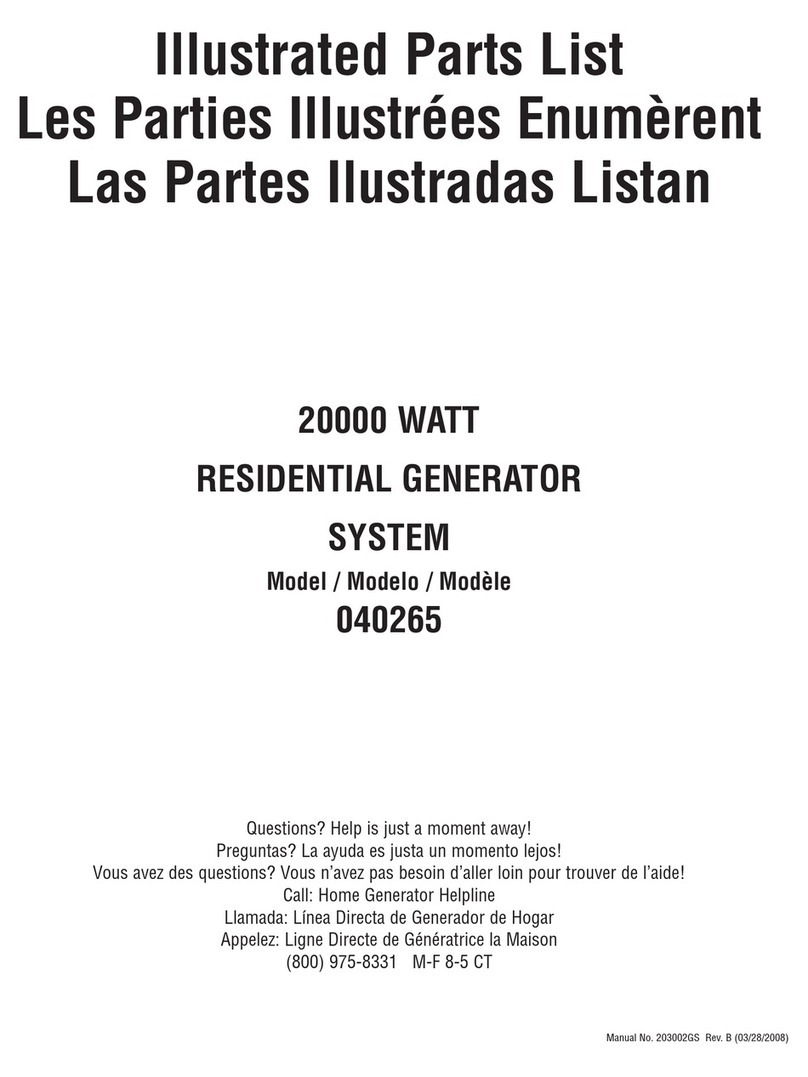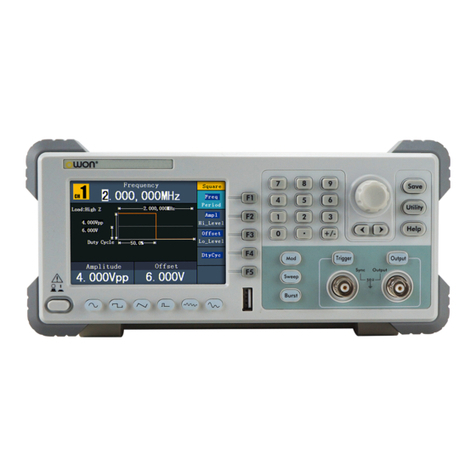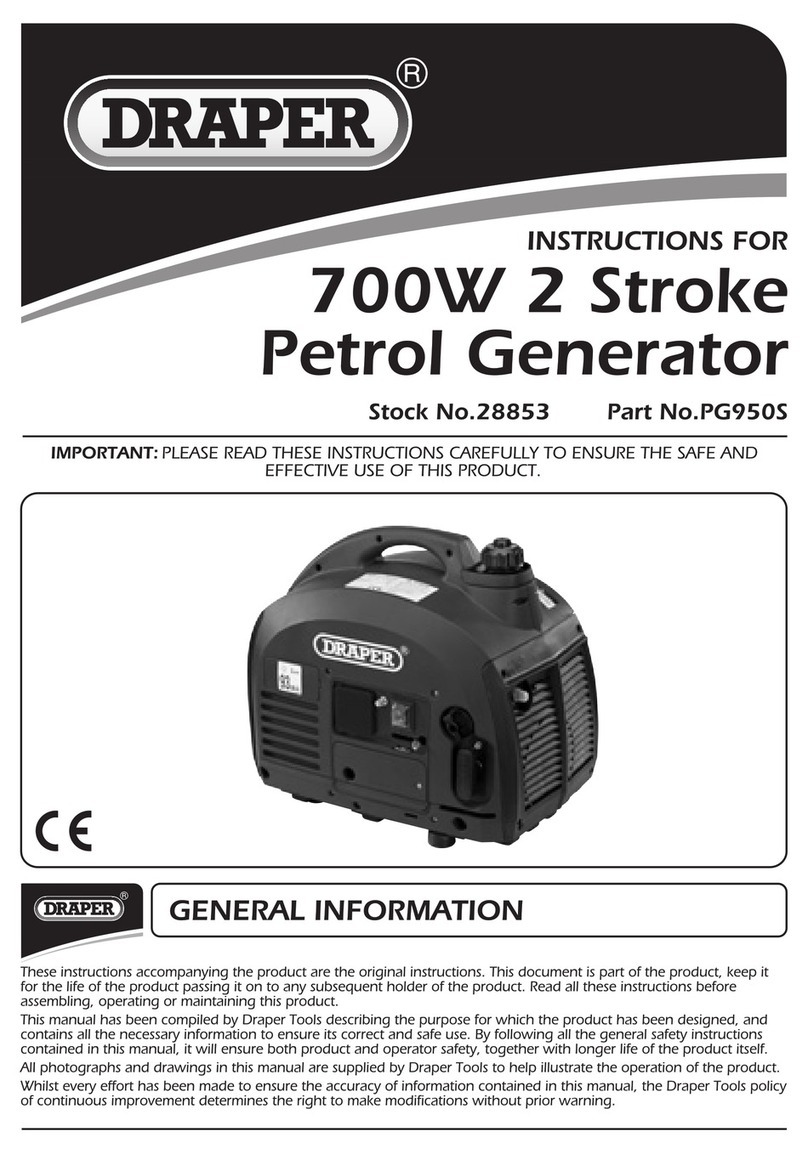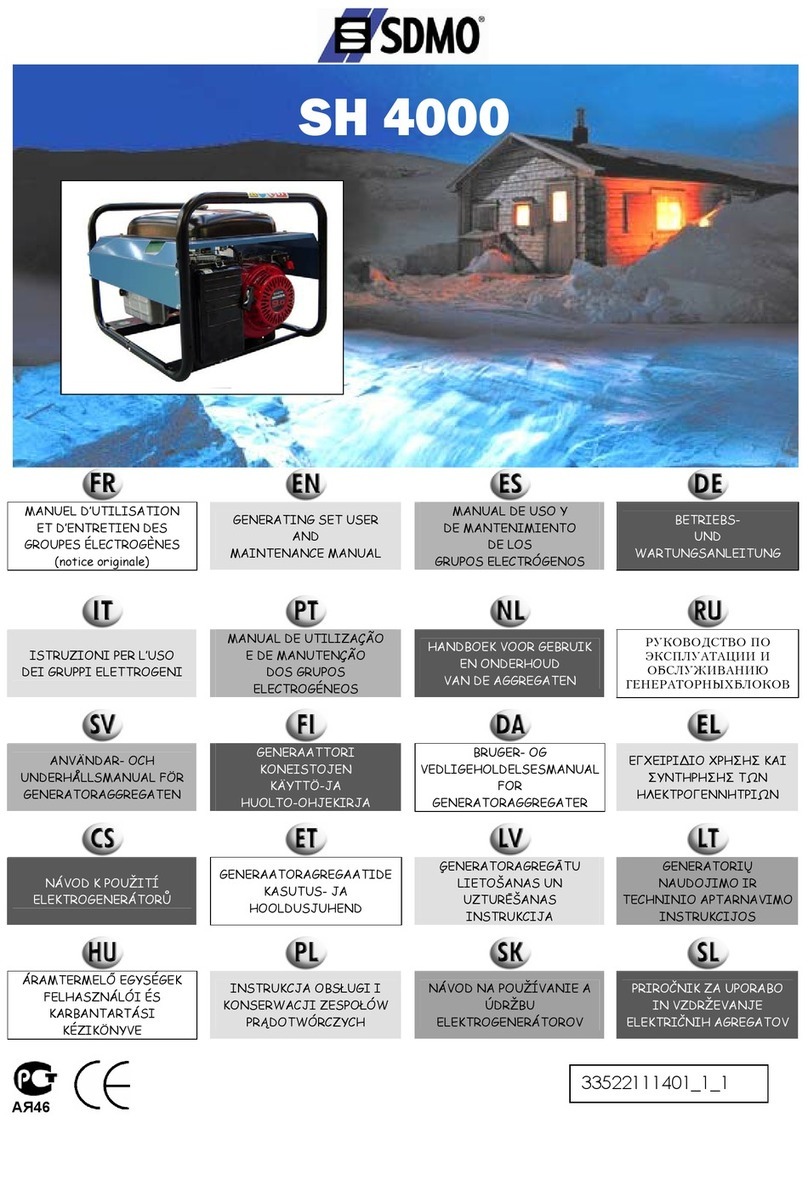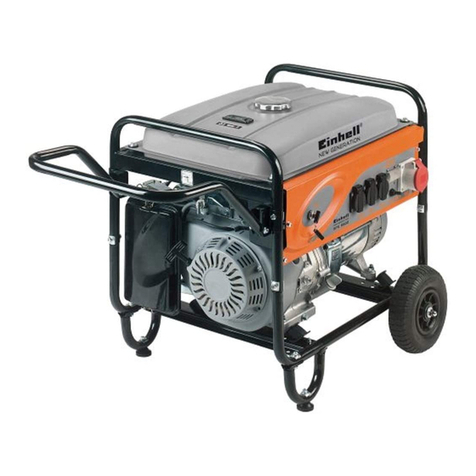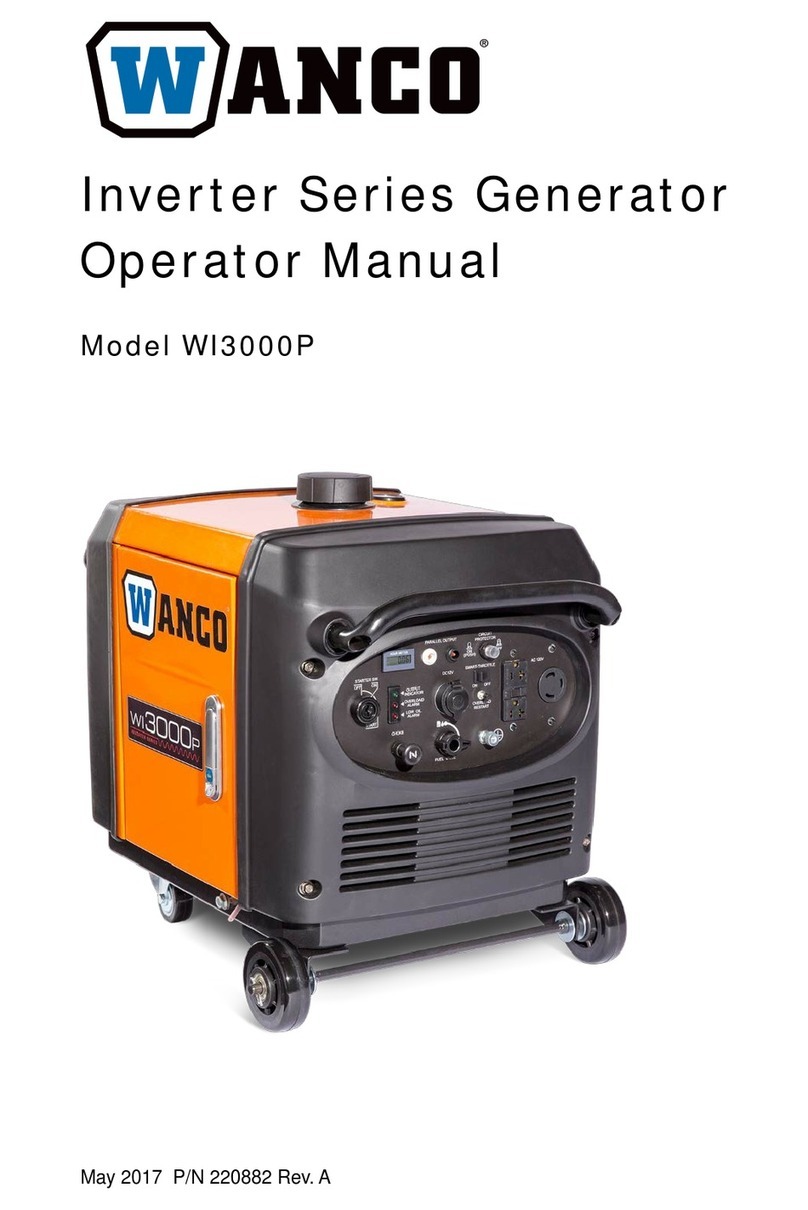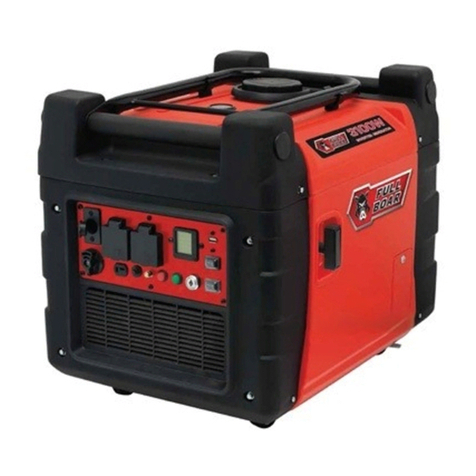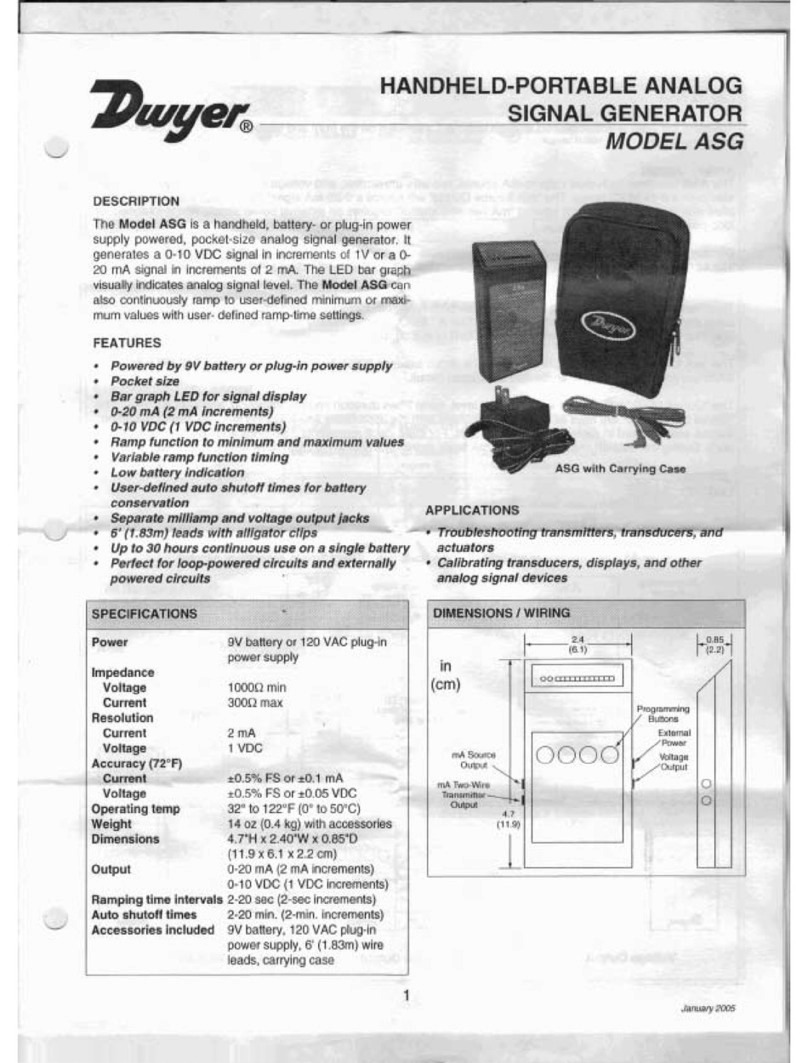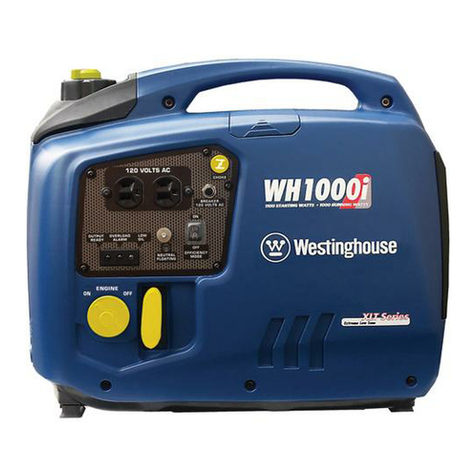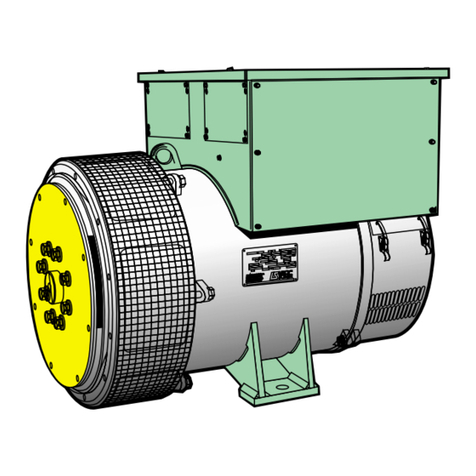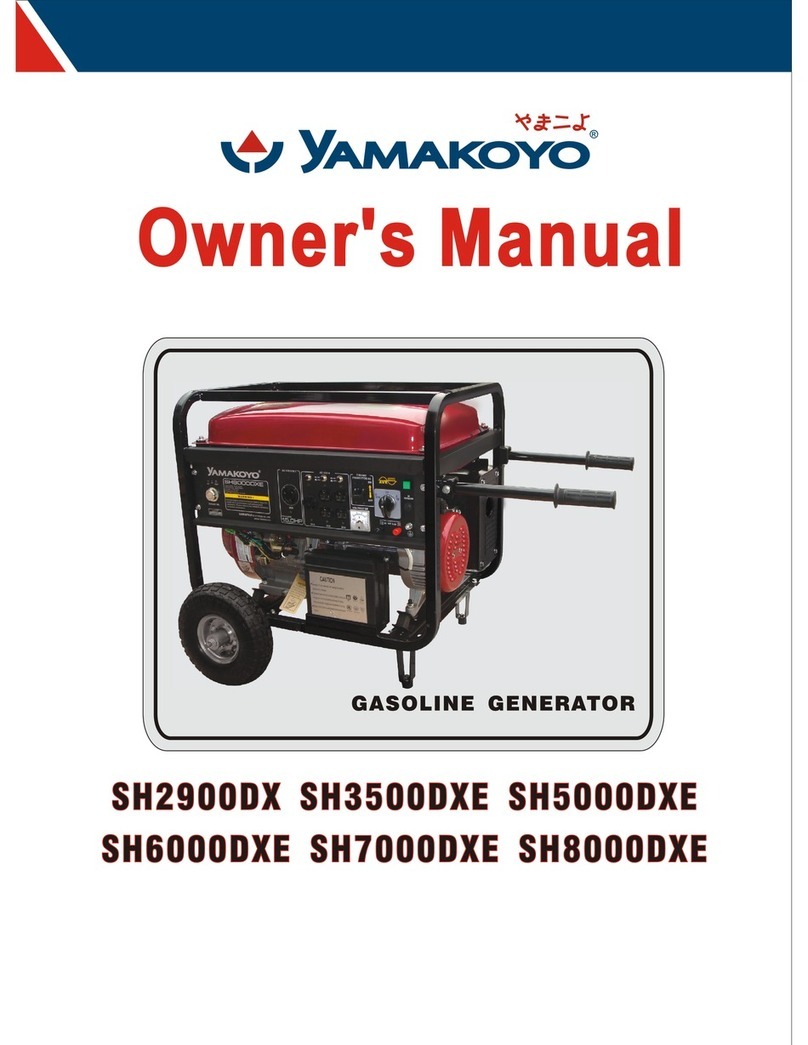4- ENG
A16596
RISK OF ELECTROCUTION
AND FIRE (Continued)
HAZARD WHAT CAN HAPPEN HOW TO PREVENT IT
Placing generator
on or against highly
conductive surface,
such as a steel walk-
way or metal roof.
Accidental leakage of electrical
current could charge conductive
surfaces in contact with the
generator.
Place generator on low conduc-
tivity surface such as a concrete
slab.
ALWAYS operate generator a
minimum of six feet from any
conductive surface.
Improper connection
of items to generator. Exceeding the load capacity of
the generator by attaching too
many items, or items with very
high load ratings to it could result
in overheating of some items or
their attachment wiring resulting
in fire or electrical shock.
Read the load rating chart and
instructions in the Wattage
Calculation section. Make sure
that the summation of electrical
loads for all attachments does
not exceed the load rating of the
generator.
Operation of unit
when damaged, or
with guards or panels
removed.
Attempting to use the unit when
it has been damaged, or when it
is not functioning normally could
result in fire or electrocution.
Do not operate generator with
mechanical or electrical problem.
Have unit repaired by an Autho-
rized Service Center.
Removal of guarding could
expose electrically charged
components and result in
electrocution.
Do not operate generator with
protective guarding removed.
RISK OF FIRE
HAZARD WHAT CAN HAPPEN HOW TO PREVENT IT
Attempting to fill the
fuel tank while the
engine is running.
Gasoline and gasoline vapors
can become ignited by coming
in contact with hot components
such as the muffler, engine
exhaust gases, or from an
electrical spark.
Turn engine off and allow it to
cool before adding fuel to the
tank. Equip area of operation
with a fire extinguisher certified
to handle gasoline or fuel fires.
Sparks, fire, hot
objects Smoking material, sparks, fires,
or other hot objects can cause
gasoline or gasoline vapors to
ignite.
Add fuel to tank in well ventilated
area. Make sure there are no
sources of ignition near the
generator.
Improper storage of
fuel Improperly stored fuel could
lead to accidental ignition. Fuel
improperly secured could get
into the hands of children or
other unqualified persons.
Store fuel in a OSHA approved
container designed to hold
gasoline. Store container in
secure location to prevent use
by others.
Inadequate ventilation
for generator Materials placed against or near
the generator or operating the
generator in areas where the
temperature exceeds 104° F.
ambient (such as storage rooms
or garages) can interfere with its
proper ventilation features caus-
ing overheating and possible igni-
tion of the materials or buildings.
Operate generator in a
clean, dry, well ventilated
area a minimum of four feet
from any building, object or
wall. DO NOT OPERATE
UNIT INDOORS OR IN ANY
CONFINED AREA.
